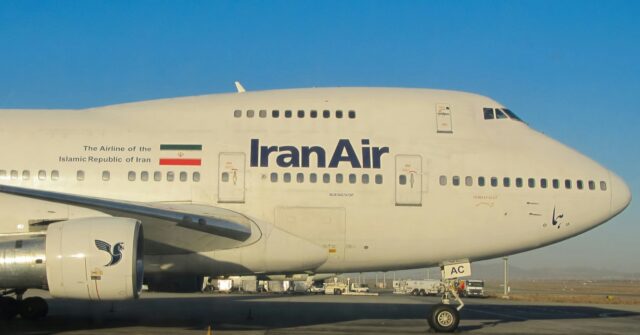On a recent Monday, the European Union (EU) took decisive action against Iran by imposing sanctions on key figures and entities believed to be involved in supplying military assistance to Russia amidst its ongoing conflict in Ukraine. Among those sanctioned was Seyed Hamzeh Ghalandari, Iran’s deputy defense minister, whose significant role in overseeing Iran’s drone and missile programs prompted the EU to include him in a travel ban and freeze his assets within the bloc. The sanctions extend to six additional Iranian officials and target three Iranian airlines—Iran Air, Mahan Air, and Saha Airlines—which have been implicated in the transportation of Iranian-made drones and military technology to Russia, further complicating an already strained geopolitical landscape.
The EU’s decision comes on the heels of earlier warnings issued in March regarding Iran’s military support to Russia. It was made clear that the EU would take swift and robust measures if Iran were to extend ballistic missiles and related technologies to assist Russian military operations against Ukraine. This latest round of sanctions represents the EU’s commitment to countering any forms of military cooperation between Iran and Russia, especially in the context of the war that has seen significant international involvement and alarms over the infringement of Ukrainian sovereignty.
The measures recently endorsed by EU foreign ministers during a meeting in Luxembourg reflect a broader strategy aimed at supporting Ukraine while penalizing those who enable Russian aggression. The sanctions reinforce a united European stance against Russia’s actions and the perceived complicity of Iran, a nation that has been increasingly viewed as a critical ally to Moscow in terms of military logistics and technology supply. This unity among EU member states, with the notable exception of Hungary, highlights a firm determination to impose economic and military restraint on violators of international law, particularly in the face of ongoing hostilities in Ukraine.
Since the onset of Russia’s full-scale invasion of Ukraine in February 2022, the EU has committed itself to aiding Ukraine through extensive humanitarian and military support. This has amounted to approximately 118 billion euros ($129 billion) in various forms of assistance, showcasing the EU’s resolve to aid its neighbor in maintaining sovereignty and defending against aggression. The sanctions against Iranian entities serve to underscore that partnerships enabling warfare, such as those between Iran and Russia, will not go unchallenged in the current geopolitical climate.
Focusing on the airlines involved, the EU’s targeting of Iran Air, Mahan Air, and Saha Airlines indicates a critical understanding of the logistics of military supply chains in modern warfare. By freezing the assets of these airlines, the EU aims to disrupt the transportation networks that facilitate the delivery of weaponry and technology to hostile actors. The sanctions are intended to curtail not just the physical shipments of drones and related technologies, but also to send a strong message about the international community’s willingness to hold accountable those who provide military support to aggressors like Russia.
Furthermore, this latest development signals an ongoing reevaluation of international alliances and military cooperation, particularly in the context of Ukraine’s fight for sovereignty. The EU’s comprehensive sanctions against Iranian officials and entities mark a significant move in its foreign policy, showing a readiness to address new challenges presented by evolving global conflicts. As Russia continues to rely on Iranian support, the EU’s actions contribute to the broader strategy of isolating Moscow and deterring aggressive foreign partnerships, while reaffirming its commitment to Ukraine’s defense and the principles of international law.

